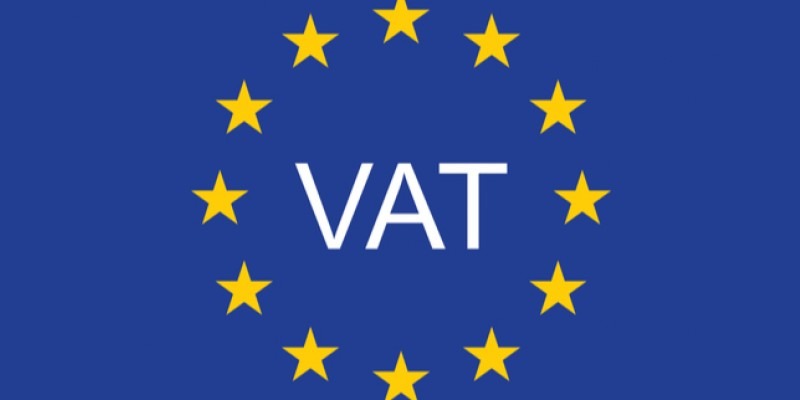
VAT arrangements are due to change significantly after the end of the transition period. This blog examines these changes, explains what you need to consider and suggests actions to take.
UK goods exports to the EU
At the end of the transition period, the UK will be a third country for VAT purposes. The key change is that sales of goods to the EU will be treated as “exports” from the UK and invoices will be “zero-rated” for VAT purposes. Customers in the EU would then account for import VAT on the import of goods from the UK.
Unlike intra-EU business to business (B2B) trade, when the UK has left the EU, VAT obligations will depend on your contract terms. For example, if you trade on “Delivered Duty Paid” (DDP) terms, there may be a requirement to register for VAT in the country you export to.
Supplying on an “ExWorks” basis will also be problematic, as an important condition of zero-rating an invoice for export, is that the UK exporter would need to keep evidence of export, which they will not have if the buyer arranges the export.
For business to consumer (B2C) exports to the EU, many EU Member States require non-EU suppliers to be the importer of record when goods arrive. This obligation results in the need to register for VAT in an EU country, in order to recover import VAT and account for local VAT on supply to the customer. The import VAT should be recoverable by most businesses, however it might pose a cashflow issue. UK companies should consider whether they need to be VAT registered in the EU countries with which they trade.
Whilst for some EU Member States it is possible to register for VAT from abroad, the majority (19 in total) require non-EU businesses to appoint a Fiscal Representative (FR) based in that country. A full list of country requirements can be found here. Although few countries have explicitly stated that UK companies will need to appoint a Fiscal Representative, this guidance is expected to be forthcoming. One country which already has had is Belgium.
It is important to remember that although all EU countries have VAT, the requirements and obligations differ between each. UK companies should avoid the assumption that what applies in one EU country applies to them all.
The role and liability of the Financial Representative (FR)
The tax authorities regard the Financial Representative (FR) as the local agent of the foreign trader. In many cases, the FR is held liable for the taxes of the trader. As a result, it is therefore industry practice to require a full bank guarantee in favour of the FR to protect it from losses. UK companies can get FR in EU countries in a number of ways:
- They can use a subsidiary in that country to apply.
- They can approach companies already established in that country to become their FR.
- They can purchase VAT services from a provider who has establishments across the EU.
In most countries, the FR is required by the local tax code to ensure that:
- The foreign trader is properly registered with the local tax office
- The trader is fully compliant with rules on invoicing, VAT treatment, exchange rates etc.
- Accounting records are maintained to exacting local standards, and that they are readily available for inspection by the tax authorities.
- All VAT and associated filings are correctly prepared and submitted.
- Enquiries and tax inspections from the VAT office are professionally handled.
UK digital exports to the EU
Digital services exports to the EU differ to physical goods because they are covered by the EU VAT MOSS scheme (mini one-stop-shop). The digital services covered by the scheme are telecommunications, broadcasting, and e-services that are sold directly to consumers. The scheme allows companies to pay their VAT on goods sold to any EU country without the need to register in other EU countries. For instance, UK digital companies have been able to use their UK VAT registration to pay all of their EU VAT directly to HMRC. However, after the transition period ends, the UK will no longer be in the scheme. If companies want to continue to use the MOSS, they must register for ‘non-Union MOSS’ in an EU country. This must be in place within 10 days of the first sale to an EU customer after the end of the transition. For more information about non-Union MOSS, click here.
Imports from the EU to the UK
Under existing rules, goods from the EU are referred to as 'acquisitions' for tax purposes. No VAT is paid until the products have been sold to the final customer and paid for. Because the UK is leaving the common VAT area on Jan 1st, goods from the EU will have to be treated like all other imports after Brexit and VAT will be payable by the 15th day of the following month. The government will introduce postponed accounting for import VAT on goods brought into the UK.
Actions to consider
- Determine VAT obligations in your cross-border supply chains (look at contracts/INCOTERMS).
- Review requirement for VAT registration in the UK and EU.
- Register for VAT in the countries that it is required, including Fiscal Representation where applicable. Apply for additional VAT registrations, including VAT MOSS if applicable.
- Set up non-Union MOSS if applicable. File all ongoing VAT declarations.
- Manage the process of VAT de-registrations where necessary.
- Review recovery of UK and EU VAT.
- Log in to post comments
